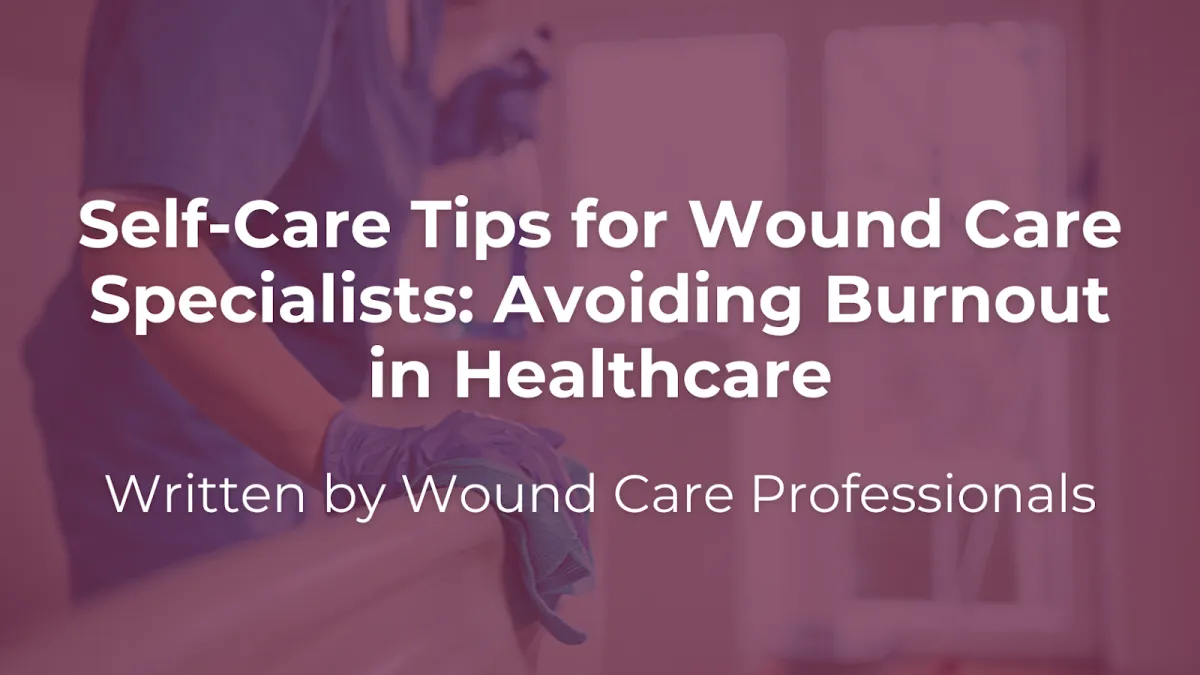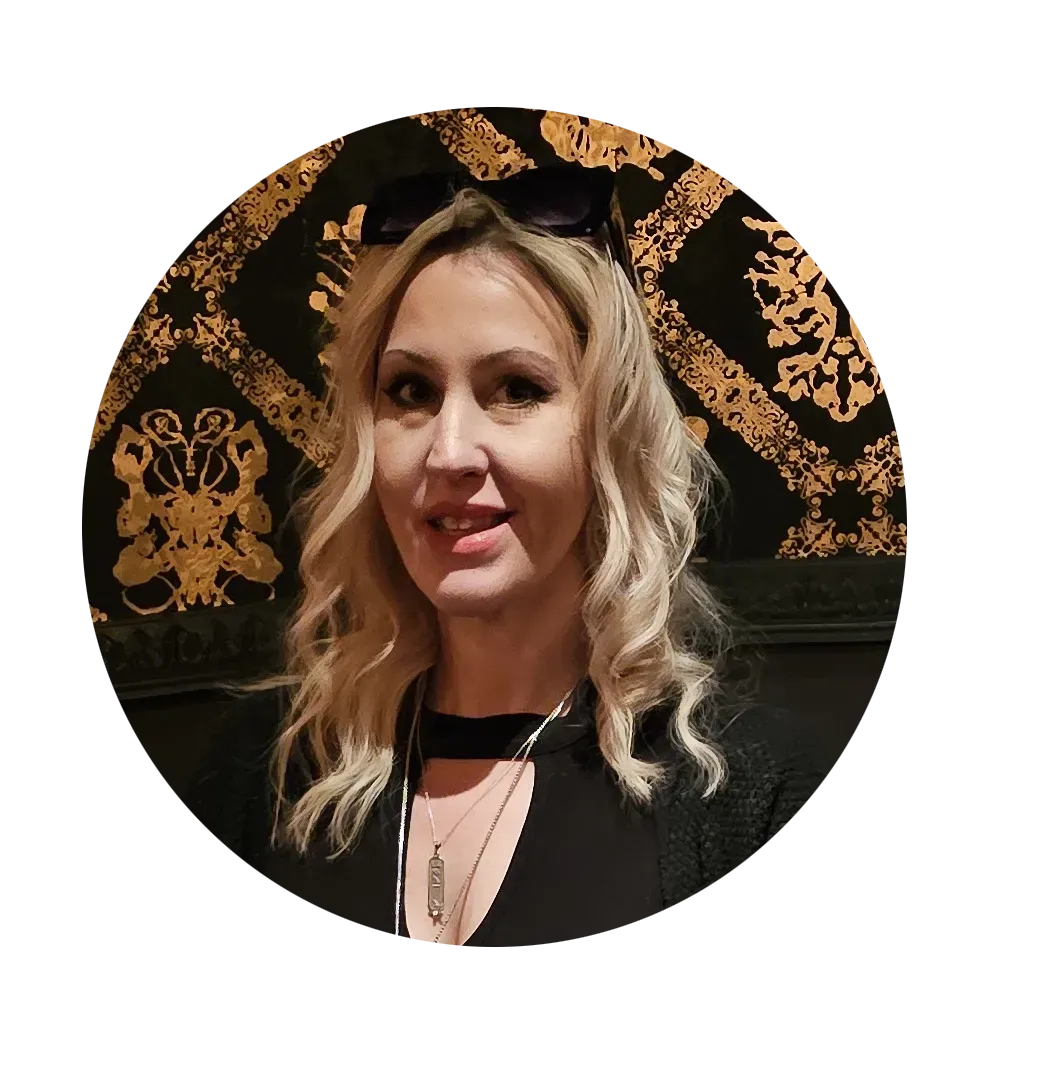wound care insights blog
Real-World Tips. Expert Voices.
Smarter Healing.
Stay ahead in wound care with expert-led articles, practical strategies, clinical updates, and stories from the field. Designed for busy professionals who want real answers—not fluff.

Self-Care Tips for Wound Care Specialists: Avoiding Burnout in Healthcare
Burnout in healthcare is a growing concern, especially among wound care specialists who navigate complex, physically demanding, and emotionally charged clinical situations every day. As a wound RN or professional working in wound nursing, your commitment to patient outcomes can sometimes come at the expense of your own emotional and physical health.
At Wound Care Professionals, we understand the unique challenges that come with being a leader in wound care. Founded by Nancy Morgan, a pioneer in the industry, we've trained and supported thousands of wound care specialists across various clinical settings. In this blog, we'll explore essential self-care strategies explicitly tailored for wound RNs and wound nursing experts to help you maintain your resilience, avoid burnout, and sustain your passion for exceptional care.
Why Wound Care Specialists Are at Risk for Burnout
Wound care often requires more than just clinical skills. It demands time, compassion, and emotional presence. Whether you're managing chronic wounds, educating patients, or coordinating with multidisciplinary teams, the workload and emotional labor can accumulate.
A 2021 study published in the Journal of Wound, Ostomy, and Continence Nursing found that over 60% of wound care nurses report moderate to high levels of emotional exhaustion. Left unaddressed, this can lead to decreased job satisfaction, poor clinical performance, and even withdrawal from the profession.
Top Self-Care Strategies for Wound Care Specialists
1. Set Clear Boundaries Between Work and Personal Life
Wound care specialists often feel a profound sense of responsibility to their patients. But always being "on" can quickly deplete your mental reserves.
Tips:
- Use technology mindfully. Establish clear limits on after-hours communication and email.
- Schedule regular off-days and protect that time.
- Learn to say "no" when your caseload becomes unmanageable.
2. Build a Community of Peers
Isolation is a silent stressor. One of the most effective tools against burnout is a strong, supportive network.
Ways to Connect:
- Join wound RN forums or online groups.
- Attend Wound Care Professionals' workshops and webinars.
- Connect with others through our vibrant professional network.
3. Practice Mindfulness & Stress Management Techniques
Mindfulness is more than a buzzword. It's a proven method for reducing stress among healthcare providers. Even small changes in your daily routine can make a significant impact.
Easy Mindfulness Habits:
- Take 5 minutes for deep breathing before your shift.
- Use grounding techniques during high-stress moments.
- Explore meditation apps designed for healthcare professionals.
4. Prioritize Physical Health
The demands of wound nursing can take a physical toll. Standing for long hours, lifting patients, and experiencing ergonomic strain are all part of the job.
Your body is your tool - treat it well by:
- Staying hydrated throughout your shift.
- Using proper body mechanics and support devices.
- Incorporating gentle exercise or stretching into your routine.
5. Seek Professional Support When Needed
Counseling and mental health support shouldn't be stigmatized. Healthcare providers who prioritize their mental well-being tend to report greater job satisfaction and emotional resilience.
Pro tip: Many healthcare organizations now offer employee wellness and counseling programs; don't hesitate to take advantage of them.
Why Self-Care Is a Clinical Imperative
Taking care of yourself directly impacts your ability to care for others. When wound care specialists are well-rested, focused, and supported, patient outcomes tend to improve. Self-care isn't indulgent; it's professional control.
At Wound Care Professionals, we're not just about education. We're about transformation. Our hands-on courses, real-world consulting, and tight-knit professional community support wound nursing experts on every step of their journey.
Conclusion
Burnout in medicine is a genuine concern, but it doesn't have to be inevitable. Implementing practical self-care strategies can help wound care specialists, wound registered nurses (RNs), and other wound nursing professionals stay resilient, passionate, and clinically sharp.
Ready to take the first step?
Contact Wound Care Professionals today to learn how we can support your journey toward sustainable, empowering caregiving.
Fall into one of these Categories? We'd Love To Help You Grow!
NURSES
PHYSICIANS
THERAPISTS
CNA/MA
MEDICAL INDUSTRY
HEALTHCARE PROFESSIONALS
HEALTHCARE ORGANIZATIONS
UNLICENSED HEALTHCARE PROFESSIONALS
INTERNATIONAL HEALTHCARE PRO
Check our what our WCP Community Members are saying...
The founder of Wound Care Professionals, Nancy Morgan has been a true inspiration on my journey to furthering my wound care education. I am deeply grateful for the opportunity to learn from WCP and continue to grow in this vital area of healthcare.

Bianca S.
MHA, BA, LVN


Innovation
Fresh & Creative Solutions

Integrity
Honesty and Transparency

Excellence
Top-Notch Services

COMPANY
LEGAL
CUSTOMER CARE
FOLLOW US
COMPANY
Proverbs 16:3 - Commit your actions to the Lord, and your plans will succeed.
RESOURCES
CUSTOMER CARE
FOLLOW US
Copyright 2025 Indiana, USA. All Rights Reserved.
